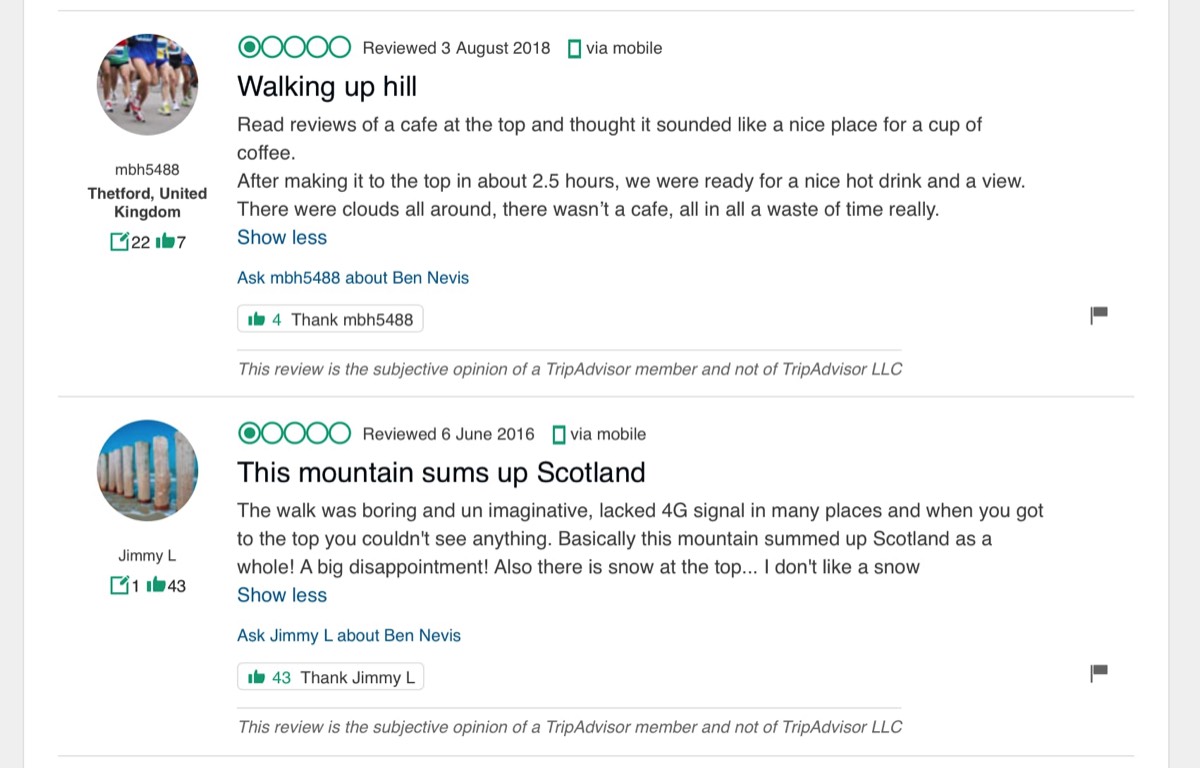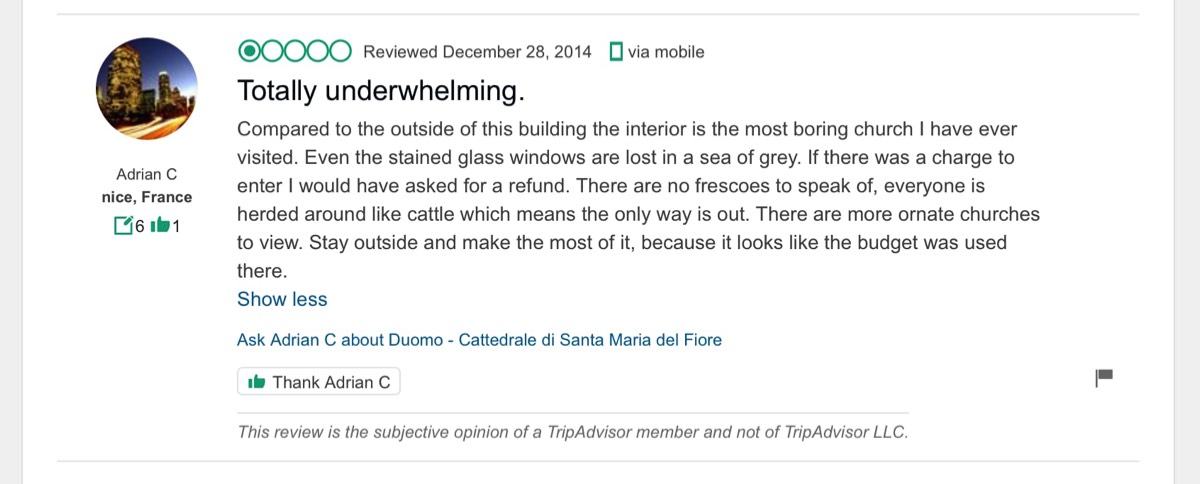The Uncertainty Overload
or The No Way
Opinion, 26 September 2018
by L.A. Davenport
In our modern life, we are bombarded by two things: information and choice. Indeed, we are so overwhelmed by an relentless stream of constant information that it can be hard to distinguish between what’s right and wrong, between good and bad, between real and fake, and between what is nourishing us and what is slowly destroying us from within.
On the other hand, we are assailed by equally relentless and equally constant stream of choices. Choices over what music to listen to, what television programmes to watch; choices over films, clothing, cars, holiday destinations, restaurants, bars and all the trappings of a family friendly society; choices over what we should eat and drink, where we should go and how we should get there; choices over who we should date, how we should have sex, and with whom; and choices over what we should think and how we should feel.
There are so many different things to choose from, but our ability to choose between them depends primarily on information. Yet are swamped by so much information, so many opinions, so many different different voices, expressing themselves in any which way you want, that it’s impossible to decide.
Take anything you want, and it seems you’ll find some who like it, an equal number who hate it, and presumably an equal number who have no idea what they think. But we are constantly pressurised by society, websites, magazines, advertising and our constantly blinking phones to make choices. We feel we have to do something, to feel something, about everything. So here we are, faced with a million choices, but unable to decide between them.
Take, for example, a conversation I overheard in a restaurant in Barcelona. The son's girlfriend was showing her prospective father in law how, before she goes to a new town, she searches for restaurants, picking out a place to eat for every night based on photos posted online of the meals they serve and other people's reviews. The father was amazed by the novelty of the technology but I was dismayed by her preplanning to such a degree.
What is wrong with arriving a new town with fresh eyes, open to whatever you find, and selecting a restaurant based on how you feel at the time, on what you want to eat and on whether the places looks nice, or not? The problem, it seemed to me, was that the girlfriend, and anyone else who does that, has lost confidence in themselves and their ability to choose and commit to that choice. Why? Because the realisation, facilitated by the internet, that there are an infinite number of dinner choices in any given town means you become stuck, petrified, in its literal sense, in the face of having to choose between them.
This isn’t necessarily such a new concept, of course. The idea that we needed to quickly and almost unthinkingly indicate a preference has faced us ever since society became urbanised and we were first sold the idea that our lives, as they stand, are not enough. It all began with the Baedeker travel guides, which introduced the first star rating, a system that has evolved from a throwaway side entertainment into something that encompasses everything.
The perfect examples are Amazon and TripAdvisor. Taken together, it is possible on their sites to rate almost anything, from books, CDs, DVDs, films, TV shows, hotels, restaurants, bars and attractions to churches, cathedrals, beaches and even mountains. [It surprises that it isn’t yet possible to give a star rating for entire counties. We aren’t quite there yet, but we cannot be far off, especially if you see what is happening in China.]
Take for example these two reviews of the mountain Ben Nevis in Scotland, from TripAdvisor:
On the other hand, we are assailed by equally relentless and equally constant stream of choices. Choices over what music to listen to, what television programmes to watch; choices over films, clothing, cars, holiday destinations, restaurants, bars and all the trappings of a family friendly society; choices over what we should eat and drink, where we should go and how we should get there; choices over who we should date, how we should have sex, and with whom; and choices over what we should think and how we should feel.
There are so many different things to choose from, but our ability to choose between them depends primarily on information. Yet are swamped by so much information, so many opinions, so many different different voices, expressing themselves in any which way you want, that it’s impossible to decide.
A million choices
Take anything you want, and it seems you’ll find some who like it, an equal number who hate it, and presumably an equal number who have no idea what they think. But we are constantly pressurised by society, websites, magazines, advertising and our constantly blinking phones to make choices. We feel we have to do something, to feel something, about everything. So here we are, faced with a million choices, but unable to decide between them.
Take, for example, a conversation I overheard in a restaurant in Barcelona. The son's girlfriend was showing her prospective father in law how, before she goes to a new town, she searches for restaurants, picking out a place to eat for every night based on photos posted online of the meals they serve and other people's reviews. The father was amazed by the novelty of the technology but I was dismayed by her preplanning to such a degree.
What is wrong with arriving a new town with fresh eyes, open to whatever you find, and selecting a restaurant based on how you feel at the time, on what you want to eat and on whether the places looks nice, or not? The problem, it seemed to me, was that the girlfriend, and anyone else who does that, has lost confidence in themselves and their ability to choose and commit to that choice. Why? Because the realisation, facilitated by the internet, that there are an infinite number of dinner choices in any given town means you become stuck, petrified, in its literal sense, in the face of having to choose between them.
The unthinking traveller
This isn’t necessarily such a new concept, of course. The idea that we needed to quickly and almost unthinkingly indicate a preference has faced us ever since society became urbanised and we were first sold the idea that our lives, as they stand, are not enough. It all began with the Baedeker travel guides, which introduced the first star rating, a system that has evolved from a throwaway side entertainment into something that encompasses everything.
The perfect examples are Amazon and TripAdvisor. Taken together, it is possible on their sites to rate almost anything, from books, CDs, DVDs, films, TV shows, hotels, restaurants, bars and attractions to churches, cathedrals, beaches and even mountains. [It surprises that it isn’t yet possible to give a star rating for entire counties. We aren’t quite there yet, but we cannot be far off, especially if you see what is happening in China.]
Take for example these two reviews of the mountain Ben Nevis in Scotland, from TripAdvisor:

Or how about this one, also from TripAdvisor, of Il Duomo in Florence, Italy?

The Ben Nevis and Il Duomo reviews make me particularly sad, as reviewing things implies a demand for an ‘experience’ and, with that, certain expectations as to how a mountain or a catholic church should ‘perform’ as an attraction. Moreover, it implies that you are entitled to a ‘service’, otherwise disappointment or even anger will ensue. However, the reviewers don’t seem to appreciate that the very act of reviewing places such as these is destroying both the experience and the understanding of what it is that we are seeing.
Il Duomo is a church, a holy place dedicated to god, not a tourist attraction. And if you think it is a tourist attraction, then it is that only because you are a tourist and you cannot see it in any other fashion. It is not there to entertain you or even please you, it is there to glorify god, and the only reason they charge an entry fee is because there are so many people coming to see it that they have to do something both to control the numbers and to pay for the damage that the tourists cause by their presence.
Ben Nevis is a mountain, a lump of rock created by geological forces, which rises up high enough above sea level to have been given the title. There is nothing more or less to it than that. To rate it, let alone have expectations about what a lump of rock may provide in terms of consumer experiences is frankly at best bizarre and at worse idiotic.
Of course, the fact that Il Duomo and Ben Nevis can be rated at all is the fault of sites such as TripAdvisor. On the other hand, it isn’t exactly their ‘fault’ because they didn’t specifically choose to have mountains rateable on the site. They simply wanted to generate more traffic to their website, so naturally added sites and attractions to all the hotels and restaurants on there so as to have another reason for people to engage with their platform.
That the logical conclusion to this blind urge to increase traffic ended with Ben Nevis being rated by at least one user as worthy of just one star is by-the-by. That the user rated as such is their choice, and theirs alone. The consequence, however, is that we are all cheapened by the existence of the review. The mountain isn’t cheapened. To that, we are merely a passing flicker of light compared to the things that it has witnessed over the millennia.
But what happens when having to rate things out of five stars gets a bit much? After all, you have to commit with five stars. You have to decide what you feel, and how much you feel it. You have to grade your opinion, to find at least some degree of nuance. Yet this is not an age of nuance, it is an age of instant gratification and mindless choice.
So what is the natural progression of the 5-star rating in such an age, so that you can express an opinion without having to think at all? Why, the Like, of course, created by Facebook as a unidirectional unithought; an uptick, embodied as literally a thumbs up. It covers everything from merely okay to wonderful and, as such, it is a homogenising, flattening, degrading, emptying expression of all positive responses into their simplest form.
On Facebook, users are encouraged to rate everything in this way. Every post, every picture and every shared thought by your friends and family, as they make them, is given a thumbs up. Or not. Can you imagine if you did that in real life to someone, while you were talking them? How would they react? How would you react if that was done to you?
If you think about it, a thumbs up is really just a ‘yes’. At least the Roman emperors could lay their thumb sideways or turn them down, but all we get is an empty, flattened, degraded positive response, devoid of all context. After all, what is ‘yes’? It is one half of a duality that goes with its opposite: ‘no’.
To have a 'yes' without its 'no' is like having 'on' without 'off', 0 without 1, ying without yang, stop without go, Eric without Ernie. It is, in short, meaningless without its opposite (apart from Eric and Ernie, who were great on their own too). To exist, to mean something, to have import and to have something to say, 'yes' must have its opposite; otherwise, the degraded, flattened, empty positive response is even further desaturated of meaning.
So, to underline the absurdity of these non-binary responses to life, and all those numerical ratings of everything, whether it be a photo, ice cream, a painting or a tree, I have created the ultimate reviewing system: The No-Way. In it, I review things only as a No. No yeses, no maybes, no ifs and definitely no buts.
It is the ultimate response to all of this wipe-clean, family friendly, offensively non-offensive bland, empty, degraded and flattened positivity that has seeped into every part of modern life. Some things I review will be genuinely things I don’t like; some will simply be things that I have meaninglessly disapproved of just to see what it looks like. It really is that stupid.
I hope you don’t enjoy it.
A flicker of light
Il Duomo is a church, a holy place dedicated to god, not a tourist attraction. And if you think it is a tourist attraction, then it is that only because you are a tourist and you cannot see it in any other fashion. It is not there to entertain you or even please you, it is there to glorify god, and the only reason they charge an entry fee is because there are so many people coming to see it that they have to do something both to control the numbers and to pay for the damage that the tourists cause by their presence.
Ben Nevis is a mountain, a lump of rock created by geological forces, which rises up high enough above sea level to have been given the title. There is nothing more or less to it than that. To rate it, let alone have expectations about what a lump of rock may provide in terms of consumer experiences is frankly at best bizarre and at worse idiotic.
Of course, the fact that Il Duomo and Ben Nevis can be rated at all is the fault of sites such as TripAdvisor. On the other hand, it isn’t exactly their ‘fault’ because they didn’t specifically choose to have mountains rateable on the site. They simply wanted to generate more traffic to their website, so naturally added sites and attractions to all the hotels and restaurants on there so as to have another reason for people to engage with their platform.
That the logical conclusion to this blind urge to increase traffic ended with Ben Nevis being rated by at least one user as worthy of just one star is by-the-by. That the user rated as such is their choice, and theirs alone. The consequence, however, is that we are all cheapened by the existence of the review. The mountain isn’t cheapened. To that, we are merely a passing flicker of light compared to the things that it has witnessed over the millennia.
When five stars is too much
But what happens when having to rate things out of five stars gets a bit much? After all, you have to commit with five stars. You have to decide what you feel, and how much you feel it. You have to grade your opinion, to find at least some degree of nuance. Yet this is not an age of nuance, it is an age of instant gratification and mindless choice.
So what is the natural progression of the 5-star rating in such an age, so that you can express an opinion without having to think at all? Why, the Like, of course, created by Facebook as a unidirectional unithought; an uptick, embodied as literally a thumbs up. It covers everything from merely okay to wonderful and, as such, it is a homogenising, flattening, degrading, emptying expression of all positive responses into their simplest form.
On Facebook, users are encouraged to rate everything in this way. Every post, every picture and every shared thought by your friends and family, as they make them, is given a thumbs up. Or not. Can you imagine if you did that in real life to someone, while you were talking them? How would they react? How would you react if that was done to you?
Eric without Ernie
If you think about it, a thumbs up is really just a ‘yes’. At least the Roman emperors could lay their thumb sideways or turn them down, but all we get is an empty, flattened, degraded positive response, devoid of all context. After all, what is ‘yes’? It is one half of a duality that goes with its opposite: ‘no’.
To have a 'yes' without its 'no' is like having 'on' without 'off', 0 without 1, ying without yang, stop without go, Eric without Ernie. It is, in short, meaningless without its opposite (apart from Eric and Ernie, who were great on their own too). To exist, to mean something, to have import and to have something to say, 'yes' must have its opposite; otherwise, the degraded, flattened, empty positive response is even further desaturated of meaning.
So, to underline the absurdity of these non-binary responses to life, and all those numerical ratings of everything, whether it be a photo, ice cream, a painting or a tree, I have created the ultimate reviewing system: The No-Way. In it, I review things only as a No. No yeses, no maybes, no ifs and definitely no buts.
It is the ultimate response to all of this wipe-clean, family friendly, offensively non-offensive bland, empty, degraded and flattened positivity that has seeped into every part of modern life. Some things I review will be genuinely things I don’t like; some will simply be things that I have meaninglessly disapproved of just to see what it looks like. It really is that stupid.
I hope you don’t enjoy it.
© L.A. Davenport 2017-2024.
Cookies are used to improve your experience on this site and to better understand the audience. Find out more here.
The Uncertainty Overload | Pushing the Wave
